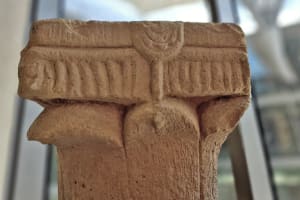New coalition anxious to reform courts, make aliyah tougher
The new Israeli government, currently under construction, looking to undo some long-standing laws and repeal recent ones

Immigrating to Israel could become harder – even for Jews – and certain legal charges decriminalized when Israel’s expected new coalition is sworn in to the 25th Knesset.
These are some of the reforms proposed by the incoming coalition that could upend the religious and legal systems in Israel.
As Israel’s president consults this week with all elected parties, those who will likely join the coalition are presenting their own demands to incoming Prime Minister Benjamin Netanyahu including a “restart” for the legal system and tougher immigration laws – even for Jews.
These issues are part of the bargaining that is going on behind the scenes as Netanyahu cobbles together the coalition.
Some of these changes underscore a religious divide in the country between secular and many Orthodox Israelis and the powerful right-wing bloc comprised of a national-religious party and ultra-Orthodox Jews.
Here are some of the actions parliamentarians in the majority bloc are expected to take in the coming weeks:
Pass massive legal reform including overriding Supreme Court rulings; abolishing “fraud and breach of trust” from the criminal code retroactively – charges faced by none other than Netanyahu who is currently on trial; and granting immunity to a sitting prime minister from prosecution;
Toughen the Law of Return and cancel the “grandfather clause” which allows the grandchild of a Jew to immigrate to Israel.
Reverse legislation that challenged the ultra-Orthodox monopoly on religious and military matters including requiring Haredi Jews to serve in the army.
Here is a cursory glance at some of these issues:
LEGAL SYSTEM REFORM
The right wing has long criticized the Supreme Court as a leftward leaning activist bench. This expected coalition is in a position to change that. In fact, one party – United Torah Judaism – is refusing to join a coalition without a commitment to collectively pass such legislation, Hebrew media reported.
This is also a top priority for the far-right Religious Zionism party which made massive overhaul to the legal system a tenet of its party platform and holds a hefty 14-seat bloc in the anticipated coalition.
The override law would allow the Knesset to rewrite legislation that the High Court struck down. Bezalel Smotrich – head of the Religious Zionism party – said that putting the power in the hands of the court “is undemocratic and illegal.”
Critics, however, say such a law would neuter the high court, eliminate balance of power and potentially undermine the rights of minorities.
Gayil Talshir, a political analyst, said that Netanyahu has a personal interest in this since he is on trial, but that the character of a democratic Israel is also at stake.
“His partners – and this is the crucial thing to understand – the ultra-Orthodox, the Religious Zionist, the settlers, the nationalist, the fundamentalist religious people have a long standing position against the Supreme Court, against the critical mediating bodies of Israeli democracy because of the relation first to the occupied territories and second to the relations between religion and state in Israel,” she said.
A few weeks before the election, Smotrich also proposed abolishing the offense of “fraud and breach of trust,” a charge faced by Netanyahu in his trial.
TOUGHENING IMMIGRATION LAWS
The Orthodox and Haredi parties want to toughen Israel’s Law of Return which allows for Jews in the diaspora to immigrate to Israel. One target is the “grandfather clause” which enables the grandchild of a Jew to make aliyah.
“We think that taking a family that lives as a distinctly Christian for two generations and saying that [they are Jewish] because they had a Jewish grandfather three generations back is something that needs to be corrected,” Knesset Member Uri Maklev told radio 103FM.
But blasting the idea was Finance Minister Avigdor Liberman who said Israeli soldiers that immigrated based on the grandfather clause were “far more Jewish” than the ultra-Orthodox who refuse to serve in the army.
In addition, Smotrich will seek to prevent non-Jewish spouses of Jews from receiving citizenship.
JEWISH MATTERS
Under the previous government run by Naftali Bennett and Yair Lapid, a deal was negotiated to allow non-Orthodox Jewish denominations to pray at a separate plaza at the Western Wall and introduced competition to the Chief Rabbinate’s monopoly on conversions and kashrut.
These changes are expected to be walked back, along with a recent tax addition on the purchase of disposal goods, such as plastic plates, that was part of an effort to deal with environmental issues. The ultra-Orthodox community consumes these products at a much higher rate than the rest of the country.
The coalition will also be eager to grant ultra-Orthodox yeshiva students exemptions from military service.

Nicole Jansezian was the news editor and senior correspondent for ALL ISRAEL NEWS.














